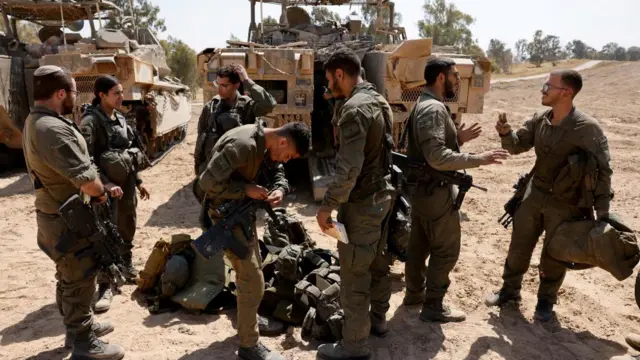
How do Iran and Israel’s military strengths match up?published at 06:44 BST 16 April 2024
Jonathan Beale
Defence correspondent
 Image source, Reuters
Image source, ReutersIran is much bigger than Israel geographically and has a population of nearly 90 million, almost 10 times as big as Israel's - but this does not translate into greater military power.
Iran has invested heavily in missiles and drones. It has a vast arsenal of its own but has also been supplying significant amounts to its proxies - the Houthis in Yemen and Hezbollah in Lebanon.
What it lacks is modern air defence systems and fighter jets. Russia is believed to be co-operating with Iran to improve those, in return for the military support Tehran has provided Moscow in its war with Ukraine - largely in the form of Shahed drones which the Russians are reportedly now manufacturing themselves.
By contrast, Israel has one of the most advanced air forces in the world. According to the IISS military balance, Israel has at least 14 squadrons of jets - including F15, F16 and the latest F-35 stealth jets.
Israel also has experience of conducting strikes deep inside hostile territory.
